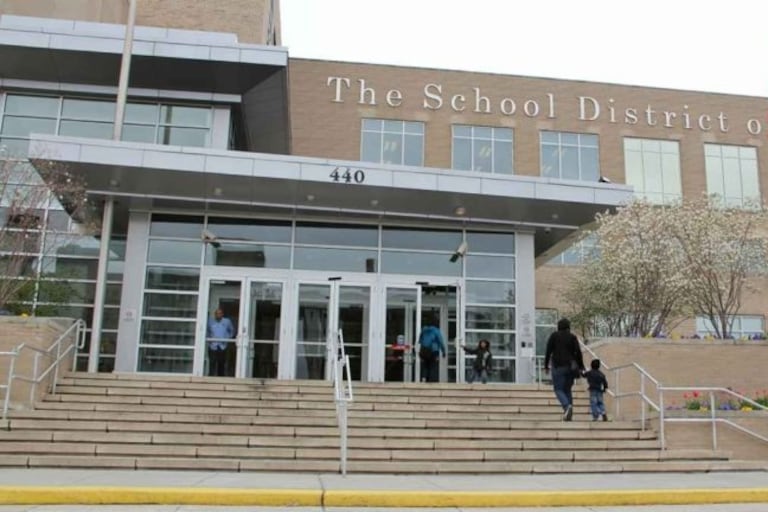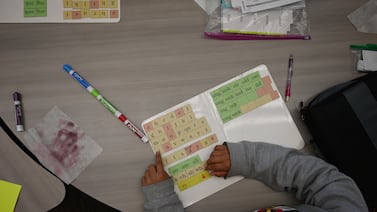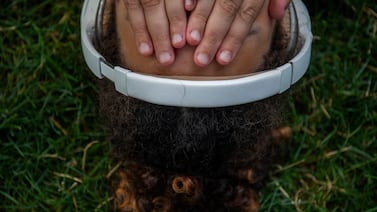The Philadelphia School District has reversed its plans to start hybrid learning for pre-kindergarten through second grade students on Nov. 30, Superintendent William Hite said Tuesday.
Hite announced the decision to remain 100% virtual at a press briefing with Mayor Jim Kenney and city health commissioner Dr. Thomas Farley. He said he made the decision after consultations with city and state health officials and the Pennsylvania Department of Education.
Principals were informed in an email Tuesday morning that schools would remain all virtual “until further notice.”
“Transitioning to hybrid learning and having students engage in face-to-face instruction is our goal, but our top priority is the health and well-being of our students and staff,” Hite said, adding that “as with everything we’ve done over the last eight months, we have to be flexible” in responding to conditions.
Farley said that COVID-19 case counts in the city “are hitting all-time highs,” with 879 new cases on Monday. The positivity rate was 9.3%, the highest since mid-May. Hospitalizations are also going up.
“We are entering a dangerous period,” Farley said. He said the city was considering more stringent restrictions on everyday activity as a result, but did not announce any.
As recently as five days ago, Hite said the district planned to move ahead with its plan to reopen schools for the youngest students at the end of the month. The district did move back the anticipated start date for teachers from Nov. 9 to Nov. 16.
At the time, Hite announced that just one-third of eligible families had chosen the hybrid model.
Farley said that he fully supported Hite’s decision, but did not order it. “The decision was ultimately made by the school district,” he said.
The Philadelphia Federation of Teachers strongly opposed reopening, saying it wasn’t safe due to rising COVID-19 cases and poor ventilation conditions in some buildings, among other concerns.
“The decision to remain fully virtual for the foreseeable future will save lives,” said union president Jerry Jordan in a statement. “The science of COVID-19, paired with the massive ventilation and other facilities issues throughout the district, makes it clear: returning to school buildings, in any capacity, is unsafe right now.”
Through last week, Hite and Farley had emphasized that in-person learning is important for the development of young children. They said there were health implications for children who were unable to go to school and interact personally with teachers, and prolonged remote learning had the most dire effects on the most at-risk children. Hite reiterated that position Tuesday.
“The most important thing that is concerning to me, we wanted to make sure that children had the appropriate conditions for learning to read, learning to do math, and unfortunately in many of our communities these conditions do not exist,” Hite said. “That’s one of the reasons we were trying to do our best to get young people back as quickly as possible.”
Many students lack reliable internet access. The city, service providers, and philanthropists set up PHLConnectED, a program to help families connect for free. Now, just under 2,000 students are enrolled at city-run centers where students can go during the school day for internet access and adult supervision. The centers have a capacity of 2,147 and the number fluctuates daily; more than 300 families are on a waiting list. Altogether, about 2,700 families have used the centers since they opened in September, officials said.
After the pre-kindergarten through second graders, the district said it would bring students with complex needs and high school freshmen back in January and those in career and technical education programs back in February. Now, that schedule is also up in the air.
“We hope to see those children return before the spring,” Hite said. “It all depends on ... if it is safe to do so.”
When Farley said last week that it was safe to reopen schools, he noted that no child in Philadelphia had died from the virus, and so far national data indicate that schools typically aren’t sources of community spread.
But on Tuesday, he acknowledged that there have been “a large number of cases, or clusters of cases,” at independent, parochial and other religious schools that have resumed some in-person learning in the city. He said, however, that contract tracing showed only three schools were at the center of the outbreak. And right now, city officials have no plans to order those schools to return to all-virtual learning.
Over the last week, the teachers union had grown increasingly vocal about concerns whether a return to in-person learning was safe.
Philadelphia’s teachers and the school district had reached a tentative contract agreement last month that included a 2% raise and what Jordan called “one of the most stringent safety plans in the nation” to regulate in-person schooling during the coronavirus pandemic.
Jordan noted, too, that the state department of education’s guidelines indicated virtual learning should be used by school districts if there’s a substantial increase in community spread. State officials recommend all-virtual learning if there are more than 100 cases per 100,000 population and a positivity rate of 10%. Philadelphia is now at 9.3%, and that is steadily rising.
“This delay is challenging for students and educators alike,” Jordan added. “Remote learning should be no one’s goal, because we know that it is far from ideal. But, it is a win for students and educators nonetheless, because no one can work and learn if they are ill, or worse, from COVID. This decision will keep our students and staff safe, and that is, and must remain, the top priority.”







